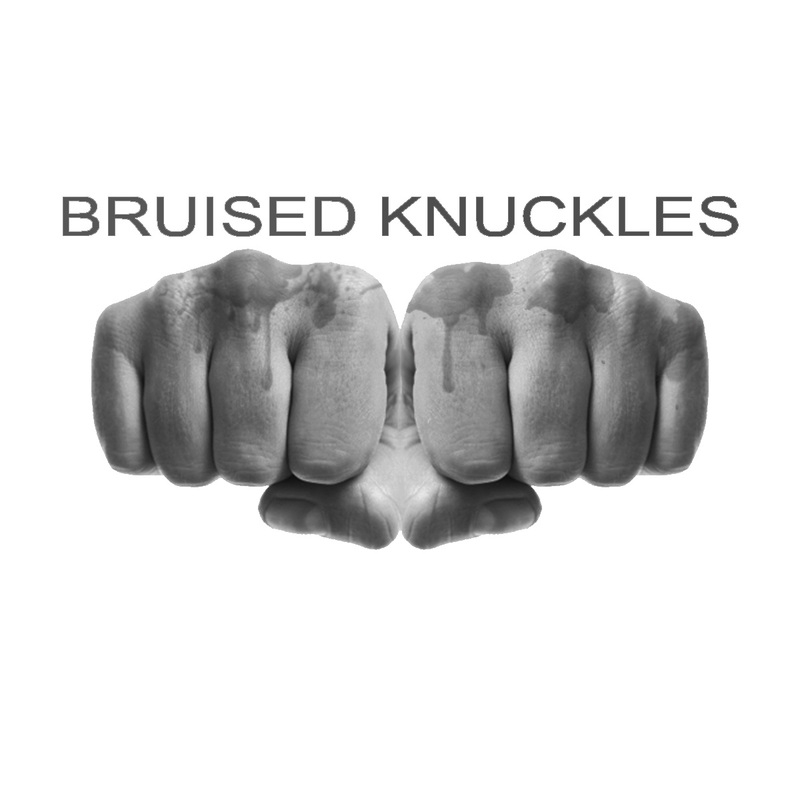|
Tardigrade, the pet project of CT punk veterans Luke and Craig Mills, have released their second single on Darth Fader Records (Two Humans, Robbing The Vatican). “Solitary” (preceded by the sonically fraternal but wordier “Hypnopaedia”) is a dryly emotional skeleton draped in a denim patch jacket, with an indie-colored twinkle in its eye socket.
Just as other musical alchemists have experimented with mixing this holy trinity – some power chords there, a blast beat here, an acoustic guitar and a ballad structure tossed in for flavor - Tardigrade has swirled around the Erlenmeyer flask and created something which, although a little rough around the edges, has its own unique and compelling flavor. Hear it for yourself below, and check out “Hypnopaedia” here on Tardigrade’s Bandcamp. Now that I’ve done my job and drawn your attention to Tardigrade’s music, I can drop the façade and tell you a secret: I’m a terrible blurb writer. Once started on its merry way, my train of thought takes about as long to brake as actual rolling stock, and the words “Keep it under five hundred” are enough to start me biting my nails. I am too critical, as a musician, audio engineer, and a consumer, to simply state my feelings on something without delving into why I feel the way I do. Sure, I can say “Well, it’s rough around the edges, but still compelling”, but what does that really mean? Vague placations don’t help anyone improve, as a critical listener or as a musician. I love constructive criticism. I also love to indulge myself and see how high I can run up the word count before my editor reins me in. Off we go. (Editor’s Note: Gimmie all you got.) First thing’s first: the in-your-face stuff. Luke Mills’ vocal delivery immediately makes me associate him with Al Barr, vocalist for the Dropkick Murphys. And the comparison goes deeper than that. Look, I know a lot of you hate DKM, so let me break that down a little bit before you roll your eyes and click the back button. Forget the delivery. Here’s what really makes Mills’ vocal style similar Barr’s, once you’ve stripped away the Murphys’ green paint and penchant for sight-reading Celtic traditionals through beer goggles: it’s their use of personally confrontational, scathing lyricism as a recurring motif in their songs (Barr uses this technique across multiple albums, and Mills in both “Hypnopaedia” and “Solitary”) and the way both vocalists communicate lyrically through the second person. This punchy and engaging style of narrative perspective – the same one I’m using to address you right now – allows the lyricist to communicate with the listener directly (as if the lyricist were speaking directly to the consumer, i.e. “dear reader”) or, much more commonly, vicariously (as if the lyricist were speaking about a third party or about themselves). Me, personally? I connect well with that kind of perspective in songwriting. My positive response to this is not without criticism. That technique is great, but it’s not enough to save boring lyrics from themselves. Half the time I can’t really figure out what Mills is trying to say, and the other half feels like well-trodden ground: messy insults and broad attacks on character shouted into a mic by countless others before. It’s not that he’s a bad lyricist, and it’s not because he doesn’t have anything valuable to say. It’s that just like countless songwriters before him, he’s missing the sweet spot. Even if he does ramble, I like the direction Mills’ delivery and vicariously second-person lyricism are going in (“You feel good/you feel strong/as you tear the bricks from the wall you stand on”). This is the sound of a vocalist and lyricist who hasn’t quite found his voice - but hey, how else are you going to figure it out? Lyrics aside, the band sounds good. The bass and rhythm guitar (performed by Craig Mills) are sweat-soldered together into a single thick instrument, keeping the chord progression rolling along under Luke Mills’ half-shouted, half-screamed vocals and powerful, concise drumming. Though there’s nothing inherently wrong about using bass and guitar for this textural, rhythmic purpose, Mills’ drum work on this track already does an effective job of holding down the rhythmic switch-ups and driving the song. I can’t help but wish one of the stringed instruments was (at least occasionally) doing something more active and interesting instead of simply serving as sonic reinforcement. More than anything, I ache to hear the instruments free themselves from their molds and serve the music. The lead guitar, on the other hand (again performed by Craig Mills), is arranged in a way which I find more agreeable. It politely introduces itself, surfaces where it’s needed, and leaves without making a big scene, only to emerge from the guest bedroom during the bridge to pour itself a glass of wine and put its feet up. Here is my conclusion: Tardigrade seems to have been so caught up in executing an idealization of their sound and vision that they may have neglected to experiment, to take the kinds of emotional and musical risks that preclude growth and the creation of truly excellent art. I feel strongly that Tardigrade is at their most effective — lyrically, stylistically — when deconstructing their own interpretation of the genres they seek to emulate, when delivering more dynamic instrumentation, when reciting spoken word. I look forward to seeing more of this band in the studio or onstage, even if — no, especially because — they do have some growing to do. As do we all.
0 Comments
Leave a Reply. |
What we're listening to. Archives
May 2020
Categories |

 RSS Feed
RSS Feed
